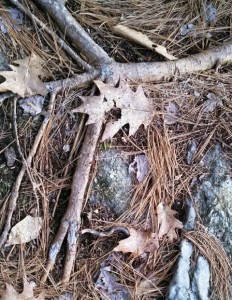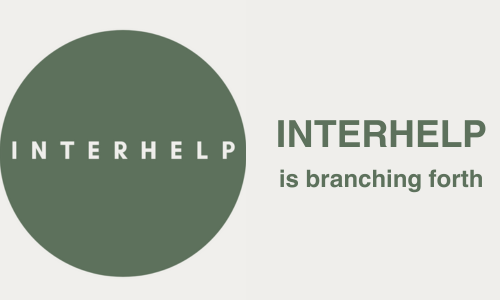Dear Interhelpers and Friends,
January’s Interhelp Day of Conversation was everything we could have hoped for and more. The morning’s journey through the Spiral set us up well for a focused and productive afternoon. See details below.
Out of this day together arose a desire improve our ability to network with each other. In support of this effort, we hope you will all respond to the “Update Your Profile” message that we will send out soon. Thanks!
Upcoming events include Dancing the Spiral in March and Singing the Spiral in April; a weekend in March on Becoming Vibrant Elders; and a five-day workshop in April, At the Crossroads of Environmental and Social Justice: Five Days of the Work That Reconnects.
Read on for more about these events, announcements about Earth Leadership Cohort and Deep Times: A Journal of the Work That Reconnects, and a reflective piece by Michael Rice, On Not Knowing.
Please feel free to be in touch. I’d love to hear from you.
Paula Hendrick,
Interhelp Editor
Interhelp Day of Conversation
Twenty-five of us gathered at Cambridge Cohousing for a very full day that felt marvelously spacious and expansive. A highlight from the morning’s journey around the Spiral was a partnered sharing about a tree that we particularly love. Carol Harley (who led this Open Sentence exercise) commented later that the joy and love reflected in participants’ faces during this sharing was as just as intense as the sorrow and compassion during the Cairn of Mourning. We built our cairn out of stones and sticks and dried leaves, sharing our griefs and losses along the way. Suc h a deep journey the morning was, all the more magical for having taken less than two “clock” hours.
h a deep journey the morning was, all the more magical for having taken less than two “clock” hours.
During the afternoon several Action Circles, which were formed after the January 2015 Day of Inquiry, met. Both the Communities of Practice circle and the Facilitator Training circle were buzzing. Watch this newsletter for announcements of facilitator training possibilities in our region.
Race and Class circle and Work That Reconnects and the Arts circle also generated excitement and many ideas, including the possibility of bringing to our area a workshop called White Awake.
If you’d like to inquire about or make a request of a particular Action Circle, or receive complete Action Circle reports, let me (Paula) know.
ANNOUNCEMENTS AND EVENTS
A third Earth Leadership Cohort (ELC) – an immersion in the Work That Reconnects for young adults age 18-30 – is in the works. Donations for this project will be most gratefully received (Kristina Orchard, Interhelp Treasurer, 10A Powdermill Circle, Maynard, MA 01754; “ELC scholarship fund” memo). Application deadline is February 15. Contact Aravinda.
The newest addition to our events listing is Singing the Spiral: Experience the Work That Reconnects through Song. Saturday afternoon, April 9th, in the greater Boston area.*
Anne Goodwin will guide our way through the Spiral with simple, powerful group singing. Ritual elements and time for reflection are included. Here’s the flyer.
*Perhaps you have an idea for a venue outside Boston proper, but within the 495 corridor? Contact Paula for more info.
The Great Turning: Becoming Vibrant Elders in Our Emerging World, based on the work of Joanna Macy and Rabbi Zalman Schachter
Kirkridge Retreat Center, Bangor PA, March 4–6. Marcia Berry, whom many of you know from Gatherings, is one of the organizers. Details here.
Active Hope: Dancing the Spiral, Woolman Hill Retreat Center, March 11–13. This retreat, blending Dances of Universal Peace with the journey through the Spiral, returns to Woolman Hill for its second year. Here’s the flyer.
At the Crossroads of Environmental and Social Justice: Five Days of the Work That Reconnects. Friendly Crossways, Harvard, MA, April 22-27. With Kirstin Edelglass, Aravinda Ananda, Joseph Rotella and Markie Babbott.
The first residential workshop in the greater Boston area for many years! As a way of extending WTR communities of practice, groups are encouraged to sponsor an attendee at this workshop. The 5-day immersion will empower participants to bring the journey of the Spiral back home with them.
Members of the third Earth Leadership Cohort will be among the participants. Early bird discount of $50 if you register by February 15th. Here’s the flyer.
Also Upcoming: Joanna Macy at Rowe in September, and Interhelp Gathering at Woolman Hill, October 21–23.
Thank you Karina Lutz for this news:
Work That Reconnects practitioners will soon have a journal to call our own! Deep Times: A Journal of the Work That Reconnects will publish its first online issue this spring. Edited by Molly Young Brown, the journal will include stories of projects that readers are engaged in; interviews, book reviews, and insights into the concepts and theory of the Work That Reconnects; experiences of or with specific populations; and readers’ music and artwork. Send inquiries and material to: deeptimes@workthatreconnects.
Poetry Editor Karina Lutz, a facilitator of WTR workshops in Rhode Island, would love to receive poems written by or translated by community members, that would be good to share in workshops. Send poems to directly to Karina with “Poems that Reconnect” in the subject line.
Watch this newsletter for an announcement of the publication of the first issue of Deep Times.
ON NOT KNOWING
by Michael Rice
It was an hour-and-a-half before sunset on a mild Fall afternoon. I was heading down a moderate hillside on a lumber road from the top of Woolman Hill in Deerfield, Massachusetts, in an easterly direction. At the near horizon was another ridge, covered with trees up the entire slope of that ridge. Slightly to the left was what at first sight seemed to be a sharp rise along the ridge, but then it seemed to be, perhaps, simply a much nearer clump of maples in colorful sunlit leaf. Then I realized: there was absolutely no way I could tell the actual shape, at ground level, of the top of the ridge while the trees on its slope and in the foreground were still in leaf.
Nearly seventy years earlier, at the start of college, I chose to major in physics, and I chose it in large part because I knew that human beings and their societies (for both of which I had great passion) were simply too complicated for me to comprehend. I wanted certitude. Physics seemed to allow for certainty; for something tangible and definite, if not (yet) known; for a sure way to research for new knowledge; for true facts of nature to become known. That, of course, was not to be: every physicist knows the Uncertainty Principle, according to which pairs of “complementary” qualities (e.g., the position and the momentum of a particle) cannot both be known precisely, because a measurement of the one affects the value of the other. Moreover, even many physicists are in denial about a less celebrated limitation to their craft. Reductionism. In order have an understanding of cause and effect, we attempt to hold all variables but one constant, and examine what results when the value of the variable of immediate interest is changed. While this reduces the complexity of the problem under study, it is also not at all what in fact occurs in nature. Thus even Physics disappointed my passion for certitude.
I decided to abandon my passion for illusory certitude and return to my passion for people, society, and Planet Earth. I was still hooked on a wish to be effective, in particular effective in achieving a more just society, and to do so by rational means. (I had liked what I had seen of the Supreme Court during the time of Chief Justice Earl Warren: seeking Justice and, in its Opinions, addressing rationally the arguments by the lawyers for the parties.) So I studied Law. I quickly saw there was poor correlation between Law and Justice. Worse, by the time I completed Law School in the 1980s, the Supreme Court had become so politicized that it seemed to form political judgments, which it then “rationalized,” rather than rationally responding to the lawyers’ arguments. On both counts, I began to question the pursuit of “effectiveness.”
I return to the unknowability of the shape of the ridge eastward of Deerfield. Or of the effectiveness of any argument of law. Or even of any political strategy for obtaining justice. If I want to know the shape of the ridge, I have to care enough to return to the place in the dead of winter: perhaps it will reveal itself. If I want justice, I have to act justly and I have to demand justice, without worrying whether what I do, when I do it, will secure the justice I seek. The key is: we cannot know whether what we specifically do will get us to our goal, but we may get there anyway. Or not. Not Knowing is our friend, if we keep the issue alive, for a set-back today does not preclude victory tomorrow, nor is success today permanent.
Today [autumn, 2015] President Obama precluded the KXL pipeline, in connection with the forthcoming world climate change conference. Was the arrest of 1200 activists at the White House four years ago the effective cause of his action? The 700-odd public climate actions since then? The recent election in Canada? The current low price of gasoline? At no point could we “know” that any of these actions or historical accidents would be “effective.” Conscious acts kept the hope alive. Change comes with cultural change of consciousness — as in the case of same sex marriage. The best we can do to help create the necessary change of consciousness is act ethically regardless of expectation of “success.”
